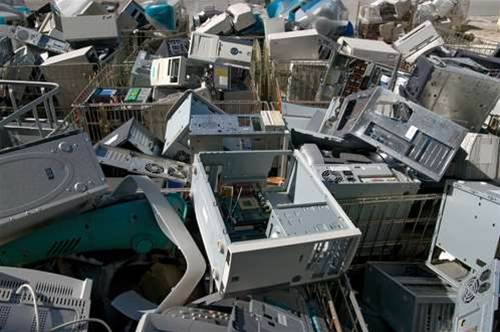Australia’s peak mobile telecommunications lobby says the Federal Government needs to tighten mobile phone recycling rules to stop some manufacturers “free riding” on its voluntary scheme.

The Australian Mobile Telecommunications Association (AMTA) manages the country’s largest voluntary scheme, MobileMuster.
AMTA’s recycling manager Rose Read said the group was talking with the federal Environment department about the possibility of bringing the scheme within the co-regulatory provisions of product stewardship legislation.
The Federal Government has already established a co-regulatory scheme for recycling TVs and computers. Under the scheme liable manufacturers are required by law to fund authorised e-waste handlers and meet recycling targets.
The scheme could be expanded to include mobile phones, according to Read.
“MobileMuster will be exploring that with the government,” Read said.
“We would flag that given the level of participation of manufacturers in MobileMuster now, as opposed to the past, there is some free riding happening and we feel that a co-regulatory approach should be considered."
She said that was because some mobile manufacturers were not compensating MobileMuster for collecting handsets discarded by their customers.
MobileMuster is funded through a $0.42 cent levy on mobile phones. MobileMuster’s manufacturers and mobile carriers respectively pay $0.30 cents and $0.12 cents to cover the cost of the tariff.
Ms Read said that MobileMuster’s member carriers and manufacturers accounted for 90 per cent of mobile handsets entering the Australian market when it was established in late 1998. She said that figure had fallen to 60 per cent since then.
Its members include Nokia, Motorola, Samsung, HTC, ZTE, Huawei, Telstra, Optus, Vodafone, Virgin Mobile and Force Technology.
Apple and BlackBerry do not contribute to MobileMuster financially even though both have enjoyed large local market shares.
BlackBerry has sold millions of handsets into Australia since 1999. Apple has also sold millions of iPhones here since 2007. Both companies said that they operate their own product recycling schemes. The companies encourage customers to return products for recycling by offering them a discount on their next purchase.
However, their handsets still make their way into MobileMuster’s collection depots and their schemes are not subject to any scrutiny or standards, said Read.
“We collect 50 per cent of what’s available for recycling. Are they doing the same?” she asked.
Both Apple and BlackBerry declined to reveal the percentage of the millions of handsets they’ve sold here that are retrieved for recycling under their independent schemes.
Read said that fewer Apple handsets ended up in its collection depots than BlackBerry products.
The Department of Sustainability and Environment told iTnews there were no current plans to include mobile phones under the computer and TV product stewardship arrangement.
However, the department’s assistant director of product stewardship, Michael McGee, revealed that the move was under consideration at an e-waste conference this month.
He was responding to questions on whether the gradual disintegration of the distinction between computers, tablet devices and mobile handsets was making the scheme untenable.
“There are plans to further review the products that are included within the television and computer recycling scheme and particularly investigating similar products and whether there is a benefit in including those under it," he said.
“The Product Stewardship Act is very flexible in what sort of products can be covered and how they can be covered. In that way the Act is looking to cover not only TVs and computers but into the future, further products."
He said, however, that any new regulation in Australia would be required to go through a regulation impact statement. Generally such processes take at least six months.
Carmel Dollisson, chief executive of TechCollect, which is an authorised non-profit collector working within the TV and Computer stewardship arrangements, said she believed the government would prefer mobile phone recycling was under a mandatory scheme.
“I suspect from a government perspective they would like to see it under the product stewardship arrangement rather than it just being a voluntary which, presumably, it could start and stop at whim," Dollisson said.
"Even if they bring it in under the stewardship arrangements as a voluntary scheme there’s more certainty it would be an ongoing program and that’s positive for government."


_(20).jpg&h=140&w=231&c=1&s=0)
.png&h=140&w=231&c=1&s=0)
_(33).jpg&h=140&w=231&c=1&s=0)
_(23).jpg&h=140&w=231&c=1&s=0)





 iTnews Executive Retreat - Security Leaders Edition
iTnews Executive Retreat - Security Leaders Edition
 iTnews Benchmark Awards 2026
iTnews Benchmark Awards 2026
 iTnews Cloud Covered Breakfast Summit
iTnews Cloud Covered Breakfast Summit
 The 2026 iAwards
The 2026 iAwards












_(1).jpg&h=140&w=231&c=1&s=0)



